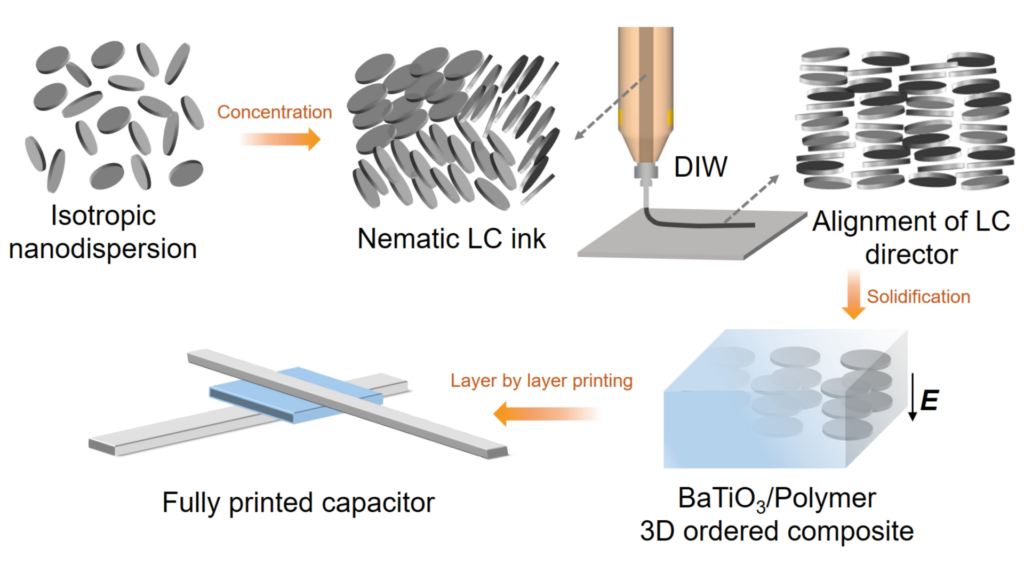LIPESC
Aqueous Liquid Crystal Inks for Printed Energy Storage Capacitors
Printing high-energy capacitors is the key to achieving high integration and further miniaturization of printed electronics. Today, most of the inks are formulated by randomly mixing dielectric spherical nanoparticles with polymers in organic solvents. Printing macroscopically ordered dielectrics remains challenging due to the lack of effective pathways to pattern the nanoparticles into macroscale materials. A thorough understanding of the ordering behavior and the governing phenomena during the out-of-equilibrium printing process and over length scales spanning from nano to macro is still missing.
In LIPESC, we will overcome these barriers and fill the knowledge gap by proposing a new class of water-based composite inks comprised of polymer and liquid crystalline nanosheets. In contrast to conventional processes and isotropic inks, this concept can lead to higher energy density by generating stronger polarizations at higher fields due to the macroscopic alignment of liquid crystal domains of the nanosheets during 3D printing. The implementation of this interdisciplinary project will be ensured by a consortium of researchers from LCMCP and LPS, who have strong complementary expertise in microfabrication and liquid crystal materials respectively.


